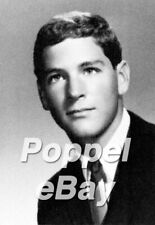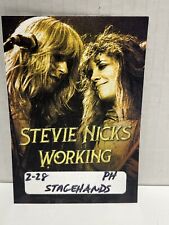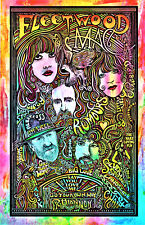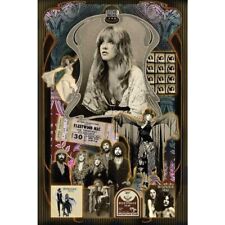|
Las Vegas Review-Journal, October 24, 1997 The Mac is Back: 'Rumours' lineup came back together naturally says co-founder Fleetwood By Mike Weatherford Review-Journal "It could have been a guy in a suit with a big suitcase full of money," says Mick Fleetwood. Some people are bound to assume it was anyway, "and there's nothing wrong with that either, as far as I'm concerned," Fleetwood adds. But the drummer and co-founder of Fleetwood Mac is happy to report that the reunion of the band's most popular lineup was a more natural process. "It all happened in a very homogenous, natural way, which is a nice healthy story to be able to tell," he says of the reunion tour that is nearly sold out at the MGM Grand Garden on Saturday and concurring live album, "The Dance." "It truly did come about from a musical reconnecting of the players in Fleetwood Mac." The tour celebrates the 20th anniversary of the "Rumours" album. Certified at 17 million in sales, the album became one of the best-selling in history and pushed aside Fleetwood Mac's history as a blues band with high turnover, cementing one lineup in the public's mind: Fleetwood, Lindsey Buckingham, Christine McVie, John McVie and Stevie Nicks. But it didn't stop the turnover. "Rumours" is as famous for the stories about its warring couples -- Buckingham and Nicks and the McVies -- as it is for the breakup songs they inspired ("Go Your Own Way," "Don't Stop"). Ten years ago, Buckingham bailed out just before the tour supporting the "Tango in the Night" album he had produced and largely written. By 1994, Nicks and Christine McVie had also bailed. Fleetwood and John McVie tried to carry on with singer Bekka Bramlett, daughter of '60s rockers Delaney and Bonnie. And for a time, it looked as though the band just might reinvent itself as a rowdy blues-rock outfit. The band put on an absolutely smoking show at the Rio, with the help of guitarist Ron Thompson, from Fleetwood's side band The Blue Whale. "It was a really good band with the wrong name, in retrospect," says Fleetwood, speaking by telephone earlier this week. "For me and John it was a very normal thing if you trace the history of Fleetwood Mac. Whenever someone has left, we keep going. It's as simple as that." Yet in this case, the band failed to establish a body of new work quickly enough, and by the following summer resembled a ghost band. "Yes, we could have gone out and toured like Chicago does, (but) without new songs giving us some form of credibility, it was becoming a sad event," Fleetwood agrees. The new lineup did manage to release an album, "Time," in 1995. But it did "diddily squat," Fleetwood says bluntly. "It was the first time basically ever since the inception of Fleetwood Mac we had no response at all at radio," he says. He and John McVie "did the right thing and closed the shop down, which after 30 years was a major decision." Bramlett and guitarist Billy Burnette recorded a country album. But Fleetwood Mac has proven itself a stubborn entity over the years, and oddly enough it was Buckingham who provided the defibrillator this time. Buckingham enlisted Fleetwood for help on a yet-to-be-released solo album that kept the two in touch for a year. At the same time, Nicks asked her ex-beau to collaborate on a song, "Twisted," for the "Twister" soundtrack. Ultimately, the reunion tour came down to a decision on what Buckingham wanted to do next, and he decided to do Fleetwood Mac first. "He can always go back and pick up where in his world he leaves off," Fleetwood says. "We can carry on and do some touring on our own afterwards ... without feeling threatened that Fleetwood Mac can touch what he built." Fleetwood says he never bought into fears that the "Time" lineup would weaken the reunited band's box office appeal. On the other hand, "I certainly wasn't presuming or assuming we would have a No. 1 album," or that most tour dates would sell out. "We're really blown away." The inevitable question is, "What's next?" Fleetwood says there still is no answer. "We're about to make some of those decisions," and he knows there's a big difference between rehearsing and playing familiar hits and sitting down to write and record new songs. "At bare minimum, it's been a truly fantastic way to celebrate a body of work these five people have done, and a great way to say goodbye, if that's the case," he says. "And if indeed it is the case, I can rest very easy with that myself." After years of being the referee and diplomat of Fleetwood Mac, "I, too, have had to learn to sort of, as it were, let go." But there's just as great a chance the band will carry on "very much as we're doing now and have fun doing it." Part of the problem in the past was that "it was all too big," Fleetwood says. "We used to go out and work for 10 or 11 months, as opposed to 10 weeks" this time. "There are many options left open for all of us. We simply will not allow the pressure to control our lives in the total as it has in the past," he says. We will not "get weighted up with all sorts of commitments, where you think, 'My God, something that was supposed to be a romp in the park turns out to be a real obligation.'" Thanks to Karen for posting this to the Ledge and to Anusha for formatting and sending it to us.
|









